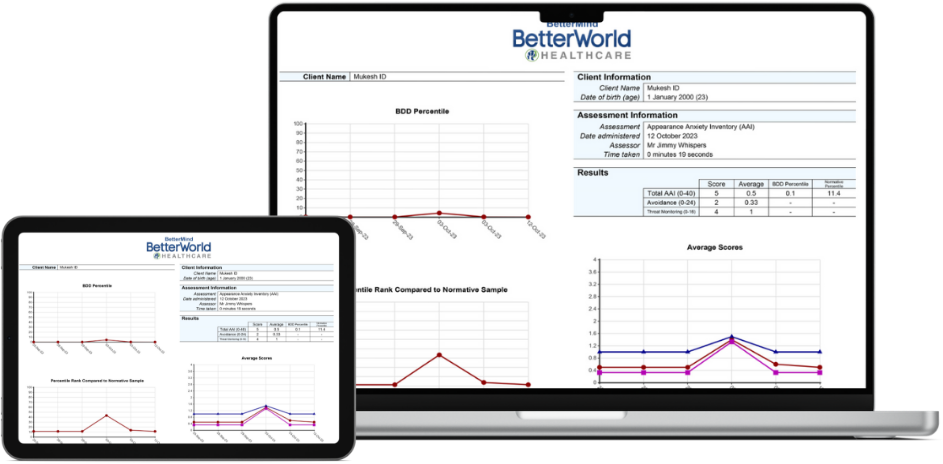Experience in Close Relationship Scale – Short Form (ECR-S)
Assessments
Description
The Close Relationship Scale is a 12 item self-report adult attachment style questionnaire. Based on Ainsworth’s infant attachment styles literature, this scale measures maladaptive attachment in adulthoods who are in a romantic relationship. The ECR-S gives scores on the two factors important in adult attachment; anxiety and avoidance. The scale is designed to assess a general “trait” pattern of adult attachment as independently as possible from respondents’ current circumstances, and may be helpful in conceptualizing with clients how they approach close relationships.
Validity
Brennan et al. (1998) reported that the ECR long version had a high level of internal consistency within the two factors, with coefficient alphas of .91 and .94 for the Anxiety and Avoidance subscales, respectively, in undergraduate students. Wei et al. (2007) confirmed in their sample (N=851) that the short version of the scale had two factors with high internal consistency, with coefficient alphas of .78 (Anxiety) and .84 (Avoidance). Correlations between the Anxiety and Avoidance subscales were r = .19, which indicated that these two measures reflected distinct dimensions of attachment. Consistent with the attachment theory predictions, the construct validity of the ECR-S was supported by the positive association of attachment anxiety with emotional reactivity and the positive association of attachment avoidance with emotional cutoff (Wei et al. 2007).
Convergent validity was established through correlation analyses with various tests (Wei et al. 2007): Excessive reassurance seeking was significantly associated with attachment anxiety but not with attachment avoidance. Depression was significantly associated with both attachment anxiety and avoidance. In summary, the ECR-S possess a stable factor structure and acceptable internal consistency, test-retest reliability, and construct validity.
Interpretation
Results consist of two scores for the two separate factors; attachment anxiety and attachment avoidance. The minimum score for each scale is 7 and a maximum score of 42. In addition, scores are represented in terms of percentile ranks in accordance to Wei et al.’s (1998) undergraduate sample, where higher percentiles represent more difficulties with adult attachment compared to peers.
– Attachment avoidance is defined as involving fear of dependence and interpersonal intimacy, an excessive need for self-reliance, and reluctance to self-disclose.
– Attachment anxiety is defined as involving a fear of interpersonal rejection or abandonment, an excessive need for approval from others, and distress when one’s partner is unavailable or unresponsive.
People who score high on either or both of these dimensions are assumed to have an insecure adult attachment orientation. By contrast, people with low levels of attachment anxiety and avoidance can be viewed as having a secure adult attachment orientation (Brennan et al., 1998). In addition, higher scores are significantly and positively related to depression, anxiety, interpersonal distress, or loneliness.
Developer
Wei, M., Russell, D. W., Mallinckrodt, B., & Vogel, D. L. (2007). The experiences in Close Relationship Scale (ECR)-Short Form: Reliability, validity, and factor structure. Journal of Personality Assessment, 88, 187-204. http://wei.public.iastate.edu/
Try it and see how BetterMind can enhance your practice

Support
Frequently Asked Questions
You’ve got questions, we’ve got answers. Below you can find answers to some of the most frequently asked questions. If you can’t find the answer you’re looking for, please feel free to reach out to us at info@betterworldhealthcare.com.
I can’t open test results within the Web Browser
Assessment result PDFs are opened in a new tab within the web browser. If you click the results but they do not open, your browser will be blocking the popup. To resolve this, after you have pressed the test result, look out for an alert at the top of your browser notifying you that a pop-up has been blocked, then click "Allow".
I have forgotten my password. How can I reset it?
If you have forgotten your password please press “forgot password” within the app, or on the Web Browser App login page (https://app.bettermind-app.com/login). You will receive a new temporary password via email.
Can a Practitioner access BetterMind from their Smartphone?
No, A Client /Patient can answer assessment questions on a smartphone but the Practitioners/ Users can't administer BetterMind using a Smartphone. A computer, laptop or tablet will have to be used.


